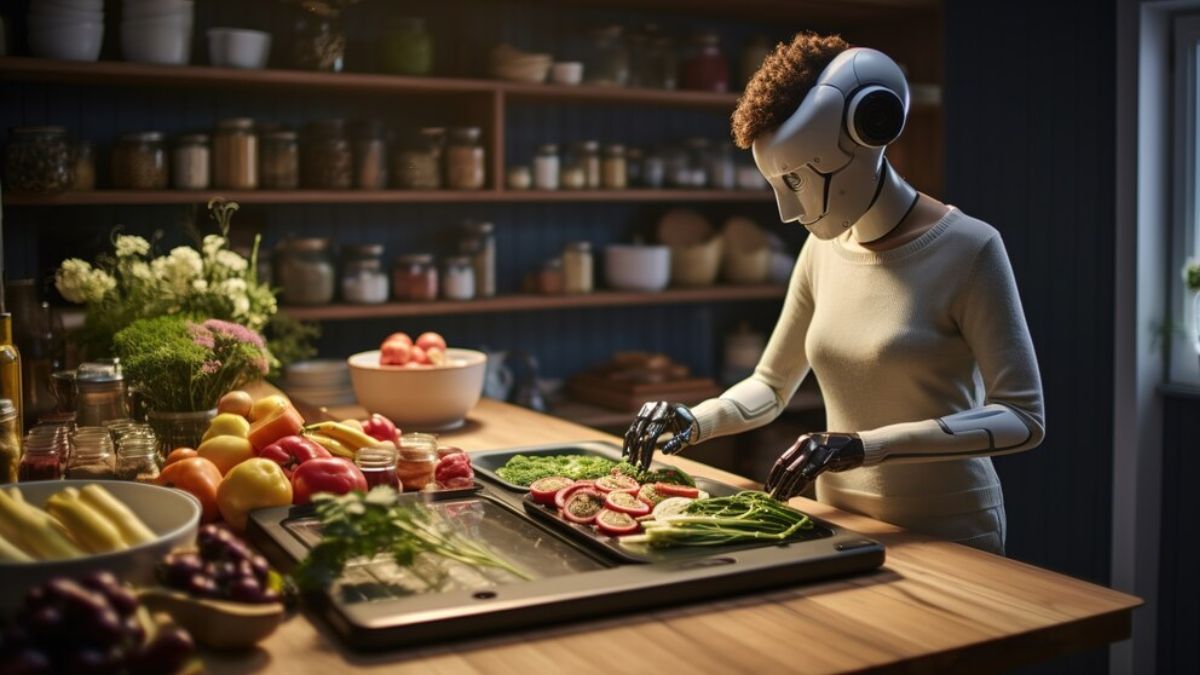The restaurant industry is headlined by a technological boom, and the AI in food industry is also a part of it. From employing artificial intelligence to supercharge customer interactions, to managing the back of house operations, restaurant functions are being redefined by artificial intelligence.
Virtual assistants in AI have become some of the most important tools for simplifying restaurant management and making the dining experience a better one overall.
Order Management
Virtual AI-powered assistants are great at streamlining the ordering process, drastically reducing errors, and increasing efficiency. These systems can take multiple orders simultaneously, and accuracy and speed are not an issue in peak hours.
Virtual assistants use advanced speech recognition technology, which allows them to understand and process complex orders, special requests, and dietary restrictions. Virtual assistants can be placed across multiple delivery platforms—mobile apps, kiosks, or tableside tablets—to give customers an enjoyable ordering experience.
These systems can quickly pass orders back to the kitchen, eliminating wait times and increasing food quality by allowing dishes to be ordered faster.
Inventory Management
AI virtual assistants are critical to optimize inventory management for restaurant inventory with effective waste prevention and cost control. Virtual assistants can monitor inventory levels in real-time and, when needed, inform managers when the supply is running low.
Using historical data and real-time trends, AI predicts future inventory needs, allowing restaurants to understand what to order. They can also automate the reordering process and talk directly with suppliers to ensure a timely restock.
Staff Scheduling
A restaurant’s success largely depends on how efficiently their staff can be scheduled, but with AI powered virtual assistants, this process can become much easier.
- Demand Forecasting: AI forecasts crowded periods by analyzing past data, current weather, and surrounding events and recommends the best resource load.
- Automated Scheduling: Virtual assistants can develop the best staff schedules, considering employees’ available work hours, skills, and labor laws.
- Real-Time Adjustments: These systems can react quickly to last-minute changes, such as employee call-outs or a sudden rise in customer traffic.
Customer Service
Virtual AI-powered assistants improve restaurant customer service by personalizing the experience and increasing satisfaction.
Virtual assistants can use this information to suggest foods tailored to a customer’s preferences and order history and even provide promotions for meals and categories not usually included in a customer’s orders.
AI systems help translate so that they can communicate with customers in multiple languages, making the dining experience easier for international patrons. Customers can make inquiries and reservations around the clock, as virtual assistants can assist them.
Financial Management
- AI virtual assistants are powerful tools for financial management and aid restaurant owners to make data-driven decisions.
- Real-Time Reporting: These systems can create current financial reports, including sales, costs, and profitability, immediately.
- Expense Tracking: Virtual assistants can categorize and track expenses, eliminating accounting process headaches.
- Revenue Forecasting: Historical data and market trends can be analyzed by AI to inform accurate revenue projections that will assist with financial planning.
Menu Optimization
AI-backed virtual Assistants can assist restaurants get their menus as profitable for them and as much tasty for customers as possible. With the help of them you are able to track how popular and profitable each menu item is and what works and what doesn’t work.
For instance, AI can evaluate market trends and competitors’ pricing to recommend the ideal cost of proposed menu items. Virtual assistants can cite menu changes based on seasonal ingredient availability and customer preferences.
Conclusion
AI-powered virtual assistants are transforming restaurant management, providing numerous benefits that simplify operations, improve customer experiences, and increase profitability. These intelligent systems, from order management to financials, are being proven indispensable tools for today’s restaurants.
We envision the further development of AI as a constantly growing technology, and as a consequence, we will see more and more complex virtual assistants that can fulfill complex tasks. These technologies will give restaurants that adopt them the edge to survive in a more competitive industry, delivering the best dining experiences while optimizing their operations for success.











